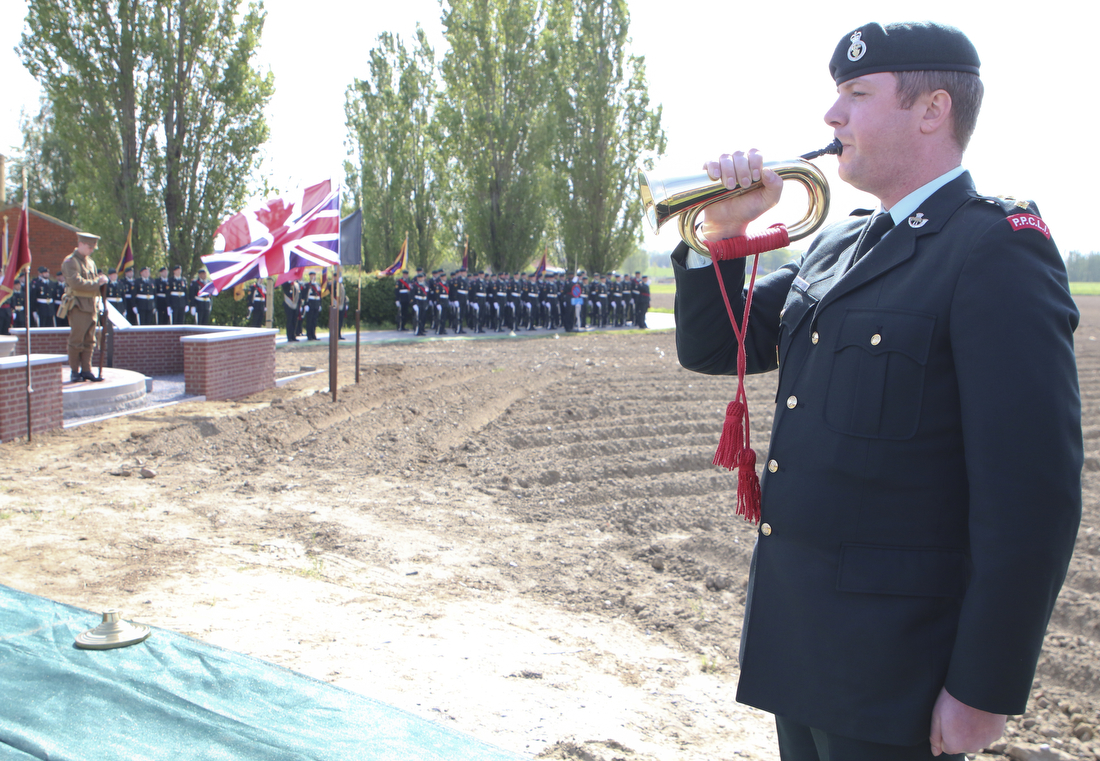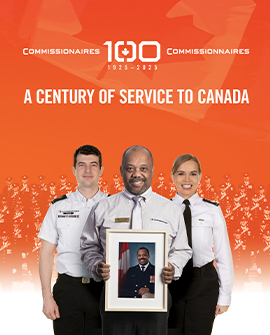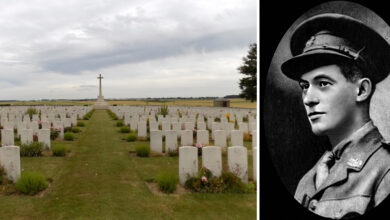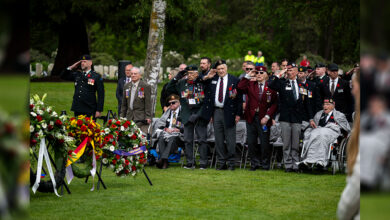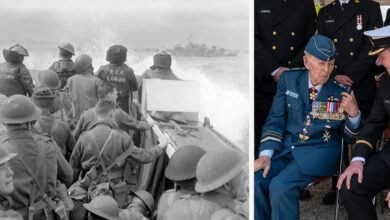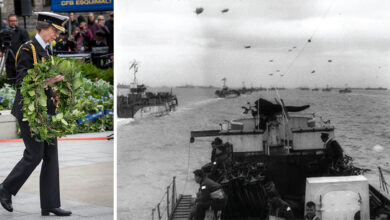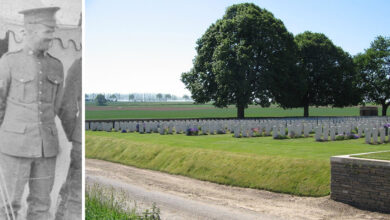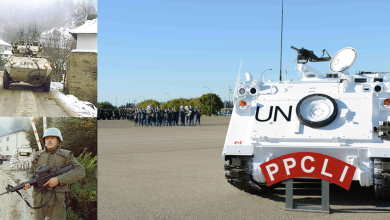History
The Patricias honour the Originals
The Princess Patricia Canadian Light Infantry (PPCLI) came to existence due to the outbreak of First World War. The unit bravely fought in its first deployment into war, losing many lives. A century later, hundreds of PPCLI returned to the site of one of the key battles in their history, the Battle of Frezenburg, for a rededication ceremony.
“Frezenberg was our first Battle Honour. Battle Honours recognize significant actions in which a unit partakes, and they form part of the history and lore of a unit. Despite the horrendous casualties at Frezenberg, the battle is a source of great pride for our Regiment as we held the line despite overwhelming odds. This established the esprit de corps that survives to this day. However, the battle is not glorified. The language used in honouring the battle is critical, as we used the word ‘commemorate’ rather than ‘celebrate’,” said Captain Dave Peabody General Manager PPCLI Museum and Archives.
The Battle of Frezenberg was the second installment of a major strike against the Germans known as the Battle of Ypres. The Battle of Frezenberg occurred on May 8th, 1915, in Ypres, Belgium. The newly-minted regiment faced many odds as the Patricia’s left flank was exposed nearly causing a collapse to the entire Commonwealth divisional line from heavy German attacks. Despite constant attacks, PPCLI was able to hold the line but at a high cost. The casualties of that Battle were 392. Many of the men who died that day were those who signed up when the regiment was first formed, causing the event to be known as “The Death of the Originals.”
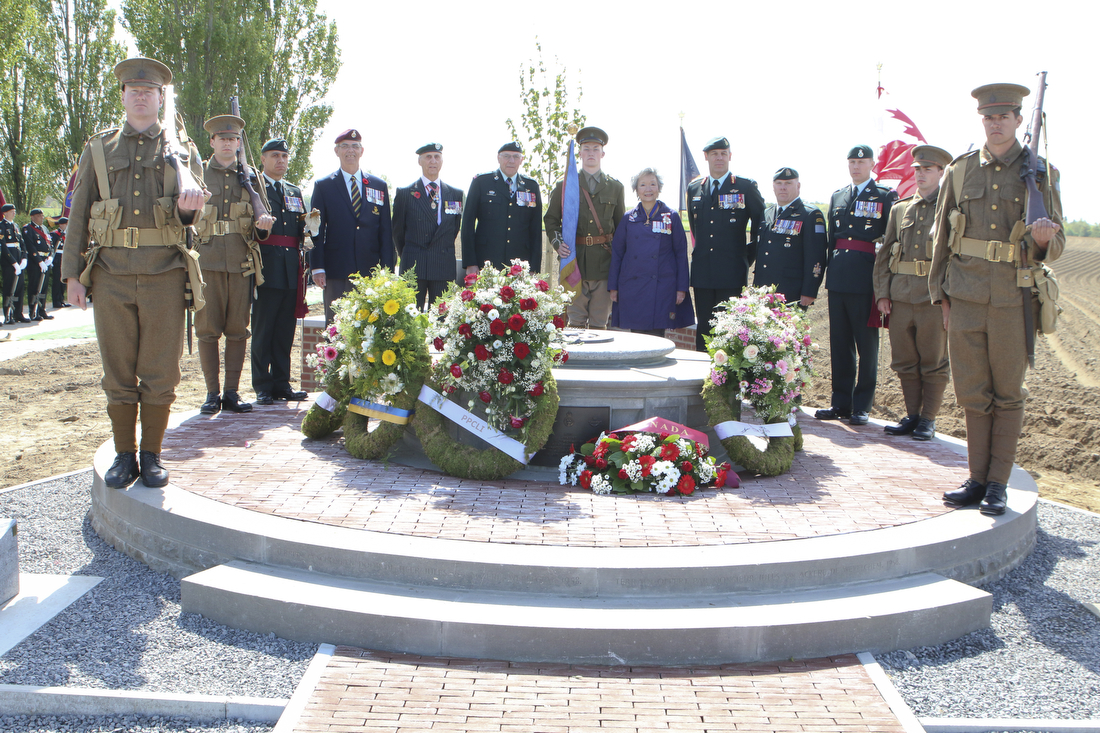
To honour the sacrifices of the Originals, the unit held ceremonies in various locations in Canada and returned back to the site of the Battle on May 8, 2015. The ceremony began long before the actual commemoration day with the Memorial Baton Relay. The Baton journeyed from Edmonton to Ottawa and then was flown to Europe where it was part of the May 8 ceremony. The Baton featured the full Honour Roll of the regiment.
The main event of the ceremony was the rededication of the refurbished memorial for the Battle of Frezenburg which included a new centennial plaque.
“I was truly honoured to be there. This is something I’ve always wanted to be a part of. I had goose bumps the entire time I was at that parade and just hearing about what the PPCLI did. The Battle of Freezenburg was one of our main battles and to learn more about the regiment was unbelievable. I can’t even put into words to explain how amazing this was. To be there on the 8th of May a hundred years after the Battle took place and to be there with over 100 Patricias was just an amazing feeling,” said Sergent Brad Lowes of the PPCLI.
Next the Patricias conducted a symbolic Freedom of the City Parade in Ypres.
“The Patricias have been one of the few military units to do a Freedom of the City Parade at Ypres. We lined up in the square of Ypres and Lt. Col. Ritchie went up to the city hall and knocked on the door. The mayor of Ypres came out and gave us the key to the city. During the parade the streets were lined with people, it was amazing. Then we did a march back through the city to the Menin Gates,” recalled Lowes.
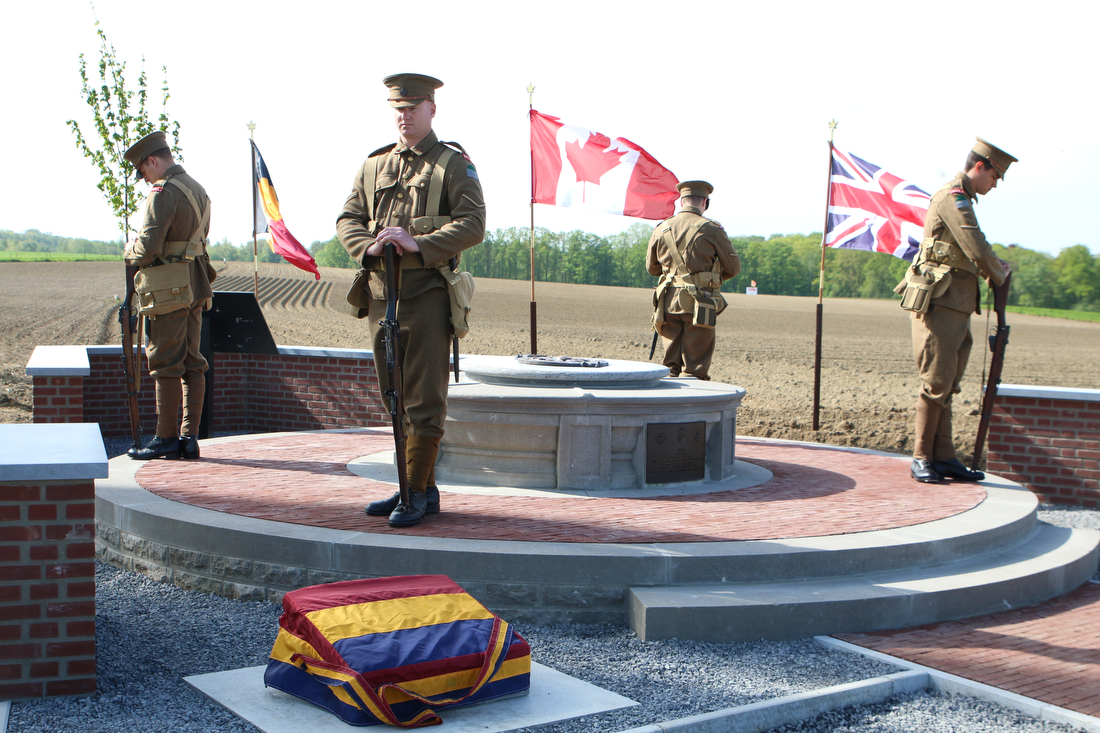
Built in 1927, the Menin Gate features the names of hundreds of soldiers, buried in unmarked graves, who were killed in the Battle of Ypres. Every night, at 8 p.m. the Last Post is played at the site and a soldier is chosen from the monument and honoured. During the Battle of Frezenburg ceremony, the Patricias concluded their Freedom of the City Parade at Menin Gate where a young Patricia who had died in the Battle was chosen that night to be honoured.
PPCLI also took part in the Third Battle of Ypres, more commonly known to Canadians as the Battle of Passchendaele. This Battle lasted three months between July 31 and November 6, 1917.
‘If we forget these guys, we forget out history and we’ll forget what they fought for. If they had lost that battle who knows what the world would have been like because if they [Germans] had taken the Battle of Ypres it would have been a major win for the Germans and would have pushed us back. I don’t want to forget them because they made all these sacrifices for us to have the freedom we have today,” said Lowes.


